The Impact of Artificial Intelligence in Everyday Life: How AI is Shaping Our World
Nowadays, artificial intelligence (AI) is a part of our everyday life and is effortlessly incorporated into the tools and technologies we use on a daily basis. It is no longer merely a futuristic idea. AI affects a wide range of activities from the time we get up until we go to sleep, improving the intelligence, convenience, and effectiveness of our lives. We’ll look at the significant **impact of artificial intelligence in everyday life** in this blog article, highlighting how AI is changing sectors, boosting individual experiences, and increasing productivity.
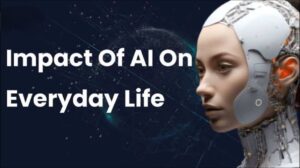
1. AI in Smart Homes: Redefining Convenience and Comfort
The field of smart home technologies is one of AI’s most obvious effects. Artificial intelligence (AI) algorithms power gadgets like smart speakers, lights, thermostats, and home security systems that pick up on your habits and preferences. For example, voice assistants with AI capabilities, like Google Assistant or Amazon Alexa, enable you to control several areas of your house with a single command. This impact of artificial intelligence on everyday life includes energy savings since AI optimizes lighting and temperature in homes by modifying them according to your sleeping or home-life schedule.
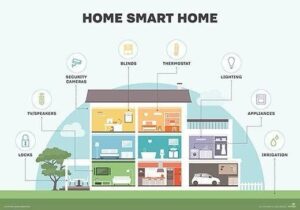
2. Personalized Shopping and E-Commerce
AI has completely changed how people shop, both online and in physical stores. AI examines your browsing history, previous purchases, and even user reviews when you explore e-commerce sites like Amazon or Netflix to make personalized product recommendations. This individualized strategy improves client happiness while also making purchasing more convenient. AI-powered chatbots are now assisting customers with product discovery, query resolution, and transaction completion, expediting the process and offering round-the-clock customer service. This demonstrates the impact of artificial intelligence in everyday life as AI streamlines our decision-making process.

3. AI in Healthcare: Improving Diagnosis and Treatment
AI is making great progress in the healthcare industry. The impact of artificial intelligence on everyday life is seen in everything from AI systems that help doctors diagnose diseases to predictive analytics that can identify possible health risks. Physicians can now evaluate medical imaging, forecast patient outcomes, and even create individualized treatment regimens with the aid of AI tools. AI is also helping with drug discovery, which speeds up the creation of novel drugs and therapies.
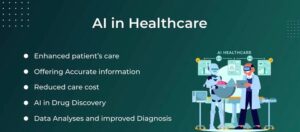
4. AI in Transportation: Changing the Way We Move
From driverless cars to AI-powered traffic control systems, artificial intelligence is completely changing the way we travel. Artificial intelligence (AI)-powered self-driving cars may lessen traffic jams and accidents. AI in transportation also contributes to route optimization, which helps drivers find the most efficient routes to save fuel and time. AI is even used by ride-sharing services like Uber and Lyft to instantly pair drivers and passengers, increasing productivity and user satisfaction. Our transportation infrastructure is changing as a result of the impact of artificial intelligence in everyday life, becoming more intelligent and effective.
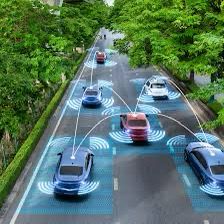
5. Enhancing Work and Productivity
By automating repetitive jobs, enhancing data analysis, and streamlining decision-making, artificial intelligence is revolutionizing the workplace. Businesses can use AI-powered solutions to analyze large volumes of data and derive insightful information that would otherwise take humans a lot longer to handle. AI systems in project management software, for instance, assist with work prioritization, deadline tracking, and resource allocation optimization. AI chatbots can answer standard customer support questions, freeing up human staff to work on more difficult assignments. In addition to increasing productivity, this makes the workplace more effective by enabling employees to concentrate on higher-value tasks.
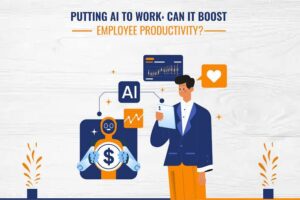
6. AI and Social Media: Tailoring Content for You
Social media platforms use AI extensively, from suggesting videos to curating your stream. AI algorithms are used by social media behemoths like Facebook, Instagram, and TikTok to evaluate your interactions, including likes, comments, and shares, and present information that is relevant to your interests. To ensure a safer online experience, AI also helps filter out hazardous content. In addition to offering a more individualized experience, this impact of artificial intelligence in everyday life keeps users interested and connected.
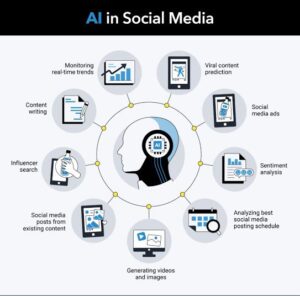
7. AI in Education: Personalizing Learning
By creating educational experiences, artificial intelligence is likewise causing a stir in the field of education. AI-powered learning systems provide personalized information, comments, and suggestions based on each student’s requirements and preferred method of learning. By allowing students to learn at their own speed, these resources enhance understanding and memory. AI can also be used by teachers to monitor student progress, spot knowledge gaps, and offer more help when required. Everyone may now study more effectively and easily thanks to the impact of artificial intelligence in everyday life in education.
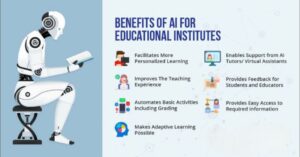
8. AI in Entertainment: Enhancing Our Leisure Time
AI has revolutionized the entertainment sector by enabling recommendation systems for video games, music, and movies. AI is used by streaming services like Spotify and Netflix to make content recommendations based on your tastes, so you’ll always have something fresh to watch. AI is also used in video games to produce more dynamic and immersive experiences, such as procedurally generated settings and realistic NPC behaviors. Entertainment is now more tailored and entertaining than ever because to the impact of artificial intelligence in everyday life.
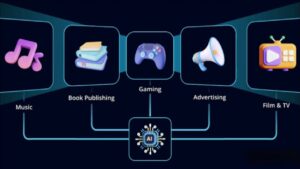
9. AI in Finance: Managing Money Smarter
AI has established itself in the financial sector, facilitating easier money management for both corporations and consumers. Apps with AI capabilities examine spending patterns and provide tailored budgeting guidance. Artificial intelligence (AI) technologies can forecast market trends and assist traders in making more informed judgments in the realm of investing. AI is also used by financial organizations to identify fraudulent behavior, giving customers more protection and peace of mind. The financial impact of artificial intelligence in everyday life is enabling people to make more informed financial decisions.
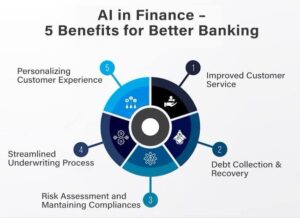
Conclusion:
AI’s Expanding Impact on Our Lives Artificial intelligence has a wide-ranging impact on daily life, affecting everything from how we work and live at home to how we use our free time. AI will only become more deeply integrated into daily life as it develops, creating new opportunities to improve efficiency, creativity, and convenience. AI has the ability to enhance the human experience, despite its drawbacks, which include privacy issues and employment displacement. It is obvious that artificial intelligence (AI) will play a significant role in determining how daily life develops in the future as we accept this technological advancement.
Call to Action:
How has AI impacted your everyday life? Share your thoughts in the comments below and let’s discuss the future of artificial intelligence together!